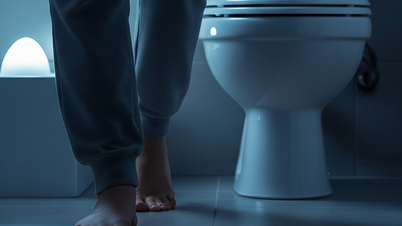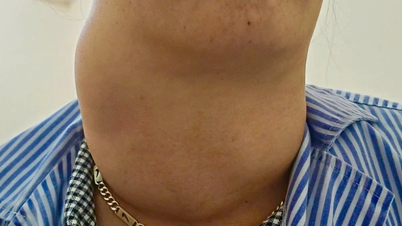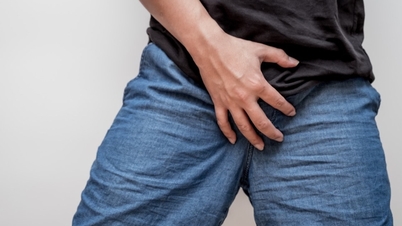When the kidneys are damaged to a certain extent, abnormal signs will appear. Among them, there are signs that you will easily notice when you lie down at night.
To detect kidney problems early, people need to pay attention to the following warning signs:
Frequent urination at night
One of the early signs of kidney damage is frequent urination at night, also known as nocturia. The kidneys are responsible for regulating the amount of urine. When their function is impaired, the kidneys will not concentrate urine properly, leading to frequent urination at night. This symptom is often confused with aging or drinking too much water before bed, according to the health website Medical News Today (UK).

Chronic fatigue is one of the warning signs of kidney damage.
Swollen hands and feet
Kidney damage also causes fluid buildup, leading to swelling in the hands, feet, and ankles. This occurs because the damaged kidneys cannot effectively remove excess sodium and fluid from the body, causing fluid to accumulate in the limbs.
A study published in the American Journal of Kidney Diseases found that fluid retention is more severe at night, when the body is at rest, making swelling more apparent than in the morning.
Skin rash
The skin reflects the health of many internal organs, including the kidneys. When kidney function declines, toxins build up in the blood, causing skin problems such as rashes, dry skin, and severe itching. This is due to the accumulation of urea toxins in the body, leading to skin irritation and rashes. These symptoms are often more pronounced at night due to our less distracted attention and increased sensitivity of the body.
Chronic fatigue
Persistent fatigue, especially worse at night, can be a sign of kidney disease. The kidneys help produce erythropoietin (EPO), a hormone important in stimulating red blood cell production. Decreased kidney function causes EPO levels to drop, leading to anemia. This can cause weakness, dizziness, and constant fatigue.
Experts say early detection makes kidney disease easier to treat. To slow the progression of kidney damage, doctors will identify the underlying cause. In advanced cases, kidney failure occurs and a person may need dialysis or a kidney transplant, according to Medical News Today .
Source: https://thanhnien.vn/dau-hieu-canh-bao-ton-thuong-than-xuat-hien-vao-ban-dem-185250311183534729.htm


![[Photo] Bustling Mid-Autumn Festival at the Museum of Ethnology](https://vphoto.vietnam.vn/thumb/1200x675/vietnam/resource/IMAGE/2025/10/4/da8d5927734d4ca58e3eced14bc435a3)

![[Photo] Solemn opening of the 8th Congress of the Central Public Security Party Committee, term 2025-2030](https://vphoto.vietnam.vn/thumb/1200x675/vietnam/resource/IMAGE/2025/10/4/f3b00fb779f44979809441a4dac5c7df)
![[Photo] General Secretary To Lam attends the 8th Congress of the Central Public Security Party Committee](https://vphoto.vietnam.vn/thumb/1200x675/vietnam/resource/IMAGE/2025/10/4/79fadf490f674dc483794f2d955f6045)




















































![[VIDEO] Summary of Petrovietnam's 50th Anniversary Ceremony](https://vphoto.vietnam.vn/thumb/402x226/vietnam/resource/IMAGE/2025/10/4/abe133bdb8114793a16d4fe3e5bd0f12)

![[VIDEO] GENERAL SECRETARY TO LAM AWARDS PETROVIETNAM 8 GOLDEN WORDS: "PIONEER - EXCELLENT - SUSTAINABLE - GLOBAL"](https://vphoto.vietnam.vn/thumb/402x226/vietnam/resource/IMAGE/2025/7/23/c2fdb48863e846cfa9fb8e6ea9cf44e7)


































Comment (0)